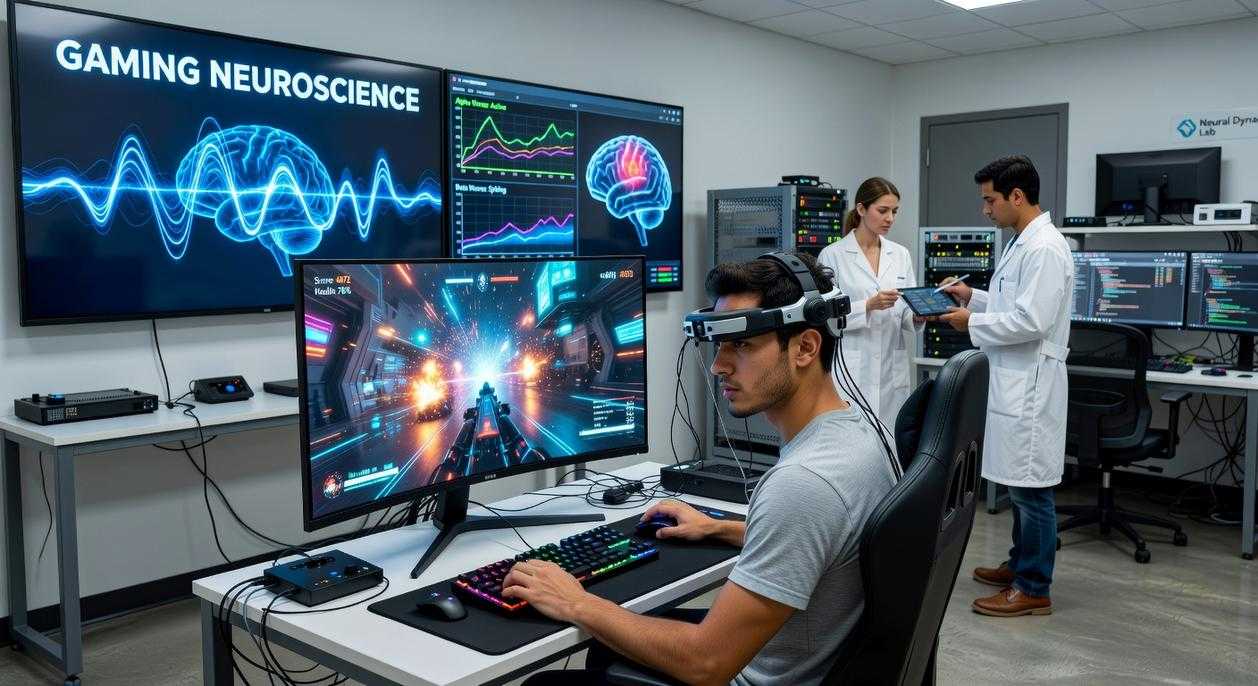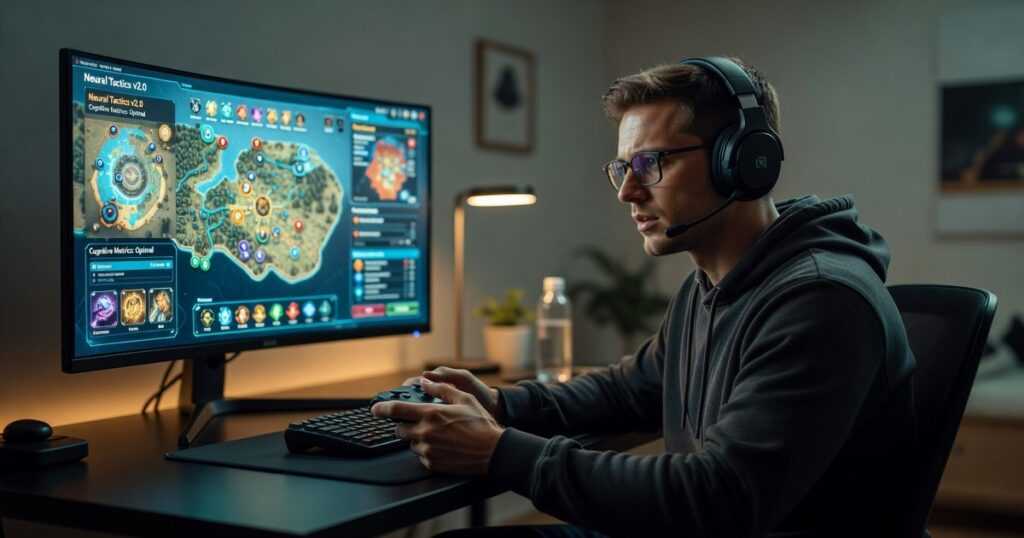I’ve spent years breaking down game mechanics and watching how players think differently after mastering complex systems.
You’re probably here because you’ve heard gaming rots your brain or makes you smarter, and you want to know what’s actually true. The real answer? It’s more interesting than either extreme.
Here’s what matters: how gaming affects the brain depends entirely on what you’re playing and how you’re playing it. Some games sharpen specific mental skills. Others might dull them.
I’ve analyzed thousands of gameplay patterns while creating tutorials and strategy guides. You start to notice things. Players who master certain game types develop different cognitive strengths than those who don’t.
This article breaks down the actual science behind gaming and your brain. I’ll show you which cognitive functions get stronger, which ones might suffer, and why the type of game you play matters more than how much you play.
We’ve watched players evolve their problem-solving approaches in real time. We’ve seen how different game mechanics train different mental muscles. That hands-on perspective shapes everything I’m sharing here.
You’ll learn what gaming does to your memory, attention span, and decision-making skills. Not the oversimplified version you see in headlines.
Just the research-backed reality of what happens in your head when you game.
The Attentional Matrix: How Games Train Your Focus
You know what drives me crazy?
People act like gaming is just mindless button mashing. Like your brain goes on autopilot while you stare at a screen.
But anyone who’s actually played knows that’s garbage. Your attention is working overtime in ways most people don’t even realize.
Let me break down what’s really happening when you play.
Selective Attention: Filtering the Noise
Fast-paced games don’t let you zone out. When you’re in an FPS or action title, you’re constantly deciding what matters and what doesn’t.
That enemy in the corner? Critical. The background scenery? Irrelevant.
Your brain learns to filter at lightning speed. It’s the same skill our player guides hammer on because target prioritization wins matches. Miss it and you’re dead before you process what happened.
Sustained Attention: The Long Game
Then you’ve got strategy games that demand something different. RTS titles and grand strategy games don’t care about your quick reflexes.
They want your focus for hours.
You’re building economies, managing armies, planning three moves ahead. And if your attention drifts for even a minute? Your entire campaign falls apart.
That’s how gaming affects the brain bfnctutorials covers in depth. You’re literally building the mental stamina to stay locked in on complex tasks.
Divided Attention: Juggling Everything at Once
MOBAs are where it gets wild. You’re tracking your minimap, watching resource counts, managing cooldowns, and fighting all at the same time.
| Attention Type | Game Genre | What You’re Training |
|—————-|————|———————|
| Selective | FPS/Action | Filtering critical info fast |
| Sustained | Strategy/RPG | Long-term focus endurance |
| Divided | MOBAs | Managing multiple streams |
Most people can’t handle that kind of information overload. But gamers? We do it without thinking because we’ve trained for it match after match.
Problem-Solving and Strategy: The Brain as a Strategy Engine
Your brain rewires itself every time you play a strategy game.
I’m not talking about some vague benefit here. When you’re three hours into a Civilization campaign or trying to counter your opponent’s build in StarCraft, your brain is literally forming new neural pathways.
Here’s what actually happens.
You try a strategy. It fails. You pivot to something new within seconds. That’s cognitive flexibility in action, and it’s one of the most valuable mental skills you can develop.
Think about the last time you had to solve a problem at work or school. You probably didn’t nail it on the first try. The people who succeed are the ones who can shift their approach when something isn’t working.
Games train that exact skill.
When you’re playing a puzzle game or managing a complex strategy title, you’re constantly testing approaches and abandoning the ones that don’t work. You get immediate feedback. You adjust. You try again.
That translates to real life faster than you’d think.
Now let’s talk about working memory. This is your brain’s ability to hold and manipulate information in the short term. It’s what lets you remember a phone number long enough to dial it or keep track of multiple tasks at once.
Strategy games put your working memory through a workout. You’re remembering map layouts while tracking enemy positions while planning your next three moves. In competitive games, you’re holding build orders in your head while reacting to what your opponent is doing.
Research from the University of California found that action video games can improve working memory capacity by up to 30% (Bejjanki et al., 2014). That’s not a small change.
Some people argue that games are just mindless entertainment. They say you’re wasting time that could be spent on “real” learning.
But here’s what they miss. The executive functions you build in games are the same ones that determine success in almost every area of life. Planning. Resource management. Adapting to changing conditions.
When you’re managing an economy in a city builder or coordinating a team strategy in a multiplayer game, you’re training foresight. You’re learning to think several steps ahead and adjust when conditions change.
That’s not wasted time. That’s practice.
I’ve covered how gaming affects the brain bfnctutorials for years now, and the pattern is clear. The skills you build in strategy games don’t stay in the game. They show up when you’re planning a project, solving a complex problem, or making decisions under pressure.
Your brain doesn’t care whether you’re playing a game or doing something “productive.” It just knows it’s solving problems and building strategies.
And it gets better at whatever you make it practice.
Visuospatial Skills and Reaction Time: Seeing and Reacting Faster

Your brain is plastic.
Not in the literal sense (obviously). But it changes based on what you do with it.
And gaming? It rewires how you see and react to the world.
Some people will tell you that staring at a screen all day makes you slower. That it dulls your senses and turns you into a couch potato who can’t function in real life.
I’ve heard it a thousand times.
But the research tells a different story. A study from the University of Rochester found that action game players made decisions 25% faster than non-gamers without sacrificing accuracy (Dye et al., 2009).
That’s not nothing.
Mental Rotation Gets a Serious Upgrade
When you’re navigating a 3D environment in games, your brain is constantly working. You’re rotating objects in your mind. Predicting where enemies will appear based on map layouts. Visualizing angles and trajectories.
This isn’t just fun and games (well, it is, but stay with me).
Your ability to mentally manipulate objects in space improves. I’m talking about real-world benefits like better parallel parking, improved athletic performance, and even stronger performance in STEM fields.
The tutorial for pc games bfnctutorials I’ve written covers specific exercises you can do in-game to maximize these benefits.
You Start Seeing Things Others Miss
Here’s something wild.
Gamers develop better contrast sensitivity. That means you can distinguish between subtle shades of gray or color that other people can’t see.
Why? Because games force you to spot enemies in shadowy corners or track movement against busy backgrounds. Your visual system adapts.
This carries over. You’ll notice details in low-light conditions that others miss. You’ll spot that car pulling out three seconds before your friend does.
Split-Second Decisions Become Second Nature
Competitive play puts you under CONSTANT pressure.
You’re making life-or-death decisions (in-game) every few seconds. Should you push or fall back? Reload or switch weapons? Engage or disengage?
Your brain learns to process information faster and act on it. How gaming affects the brain bfnctutorials shows up most clearly here. You’re literally training your neural pathways to fire quicker.
Pro tip: Focus on games that require quick decision-making under time pressure. Battle royales and fast-paced shooters are perfect for this.
The skills transfer. You’ll find yourself reacting faster in conversations, in traffic, and in high-pressure work situations.
Your brain just WORKS differently after enough competitive play.
Potential Downsides and Mitigation Strategies
Here’s what nobody wants to admit.
Gaming can mess with your brain if you’re not careful.
I know that’s not what you want to hear. Especially when everyone’s talking about how gaming boosts focus and sharpens reaction time.
But I’m going to be straight with you.
The risk is real. When you’re deep into a game, you can develop what researchers call cognitive tunneling. Your brain gets so locked onto in-game tasks that you miss everything else around you. (Your mom calling you for dinner three times? Yeah, that’s not just selective hearing.)
Some people say this proves gaming is bad for you. That it destroys your ability to pay attention to real life.
I disagree.
The problem isn’t the gaming itself. It’s how gaming affects the brain bfnctutorials when you don’t set boundaries.
Think about the dopamine loop. Every time you complete a quest or level up, your brain gets a hit of feel-good chemicals. That’s not inherently bad. But your brain starts expecting those quick rewards. And when you’re not gaming? Regular tasks feel boring by comparison.
Here’s what actually works.
Set a timer before you start playing. I use the Pomodoro technique. Game for 25 minutes, then take a five-minute break. Sounds simple because it is.
Pick games that match what you’re trying to improve. Want better strategic thinking? Play strategy games. Not whatever’s trending on Twitch.
And look, if you find yourself thinking about gaming constantly when you’re not playing, that’s your signal to pull back.
Check out our game tutorials bfnctutorials for guides on building healthier gaming habits while still getting better at the games you love.
Level Up Your Mind, Not Just Your Character
I’ve shown you that video gaming isn’t just one thing.
It’s a cognitive tool with specific effects on how gaming affects the brain bfnctutorials. Each genre works different mental muscles in measurable ways.
You came here wondering if gaming is good or bad for you. Now you have a better framework. You can see how different genres impact specific mental skills.
This changes how you approach gaming.
You can pick games based on what mental abilities you want to develop. It’s not just entertainment anymore. It’s targeted mental training.
Next time you grab the controller, think about which cognitive skills you’re working on. Are you building spatial awareness? Training your reaction time? Strengthening problem-solving?
Use our tutorials and guides to master the games you play. But also use them to understand what’s happening in your brain while you play.
Your gaming sessions can do more than help you beat the next boss. They can make you sharper in ways that matter outside the game too.
Pick your next game with intention. Homepage.



